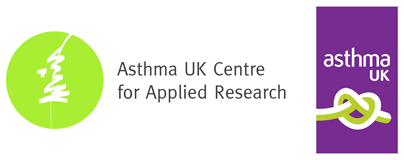About Us
- The At-Risk Registers Integrated into primary care to Stop Asthma crises in the UK study (ARRISA-UK).
- The study is funded by the National Institute for Health Research's Health Technology Assessment Programme.
- It is a randomised cluster controlled trial of a brief training of GP practice staff and of the identification and flagging of records of high risk asthma patients to determine if this it may reduce the occurrence of severe asthma related events. In this study design it is the GP practice that is randomised.
- There is a target for enrolment of 270 GP practices throughout England Scotland and Wales.
- The study intervention is to provide online training for GPs, Nurses and reception staff in managing care for those asthma patients identified as being at the highest risk of having a severe event (hospitalisation or death); often this involves prioritising all patient interactions with practice staff to maximise the utility of care opportunities to assess and improve the patient's asthma status.
- Practices will be assisted for automated identification of asthma patients identified as being at the highest risk of having a severe event using information routinely recorded locally in the GP practice database. This may then be assessed and modified by practice staff to adjust the identification based on their knowledge of their patients.
- The study runs from December 2014 through October 2022, with practice recruitment and setup from mid 2015 through mid 2018, with 1 year of follow up of the intervention at the practices.
- In addition to the use of anonymous routine data from the practices, some patients and staff from some of the practices will be invited to participate in interviews and focus groups to discuss the process of using the register and how it may affect asthma care at the surgery.
Further information
If you would like a more detailed background and explanation:
Trial Registration
The ARRISA-UK study is registered with Controlled Clinical Trials: ISRCTN95472706
The ARRISA-UK study is also registered on the UK Clinical Research Network: Study ID=18118.
The ARRISA-UK Trial is also supported by:

This website presents independent research commissioned by the National Institute for Health Research (NIHR). The views and opinions expressed by authors in this website are those of the authors and do not necessarily reflect those of the NHS, the NIHR, NETSCC, the Health Technology Assessment Programme or the Department of Health.

)